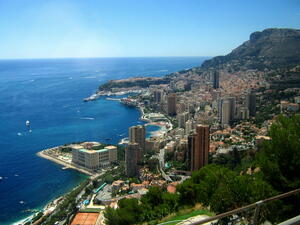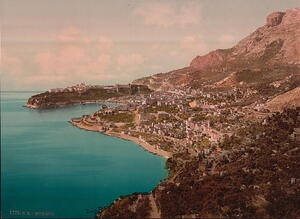The little kingdom by the sea
Prince Albert II, who will visit the ITER site on Tuesday 12 January, rules over the second smallest sovereign country in the world—the first one being the City of Vatican.
The Principality of Monaco is about half the size of Central Park in New York. Its population barely exceeds 30,000 inhabitants, among which less than 6,000 are Monégasque subjects.
This little kingdom by the sea, located 18 kilometres to the east of Nice, was established in the late 13th century. With the exception of a 25 year period during and after the French Revolution, it has always been ruled by the same family. This makes the Grimaldis of Monaco the oldest reigning dynasty in the world.
Despite its size, the Principality of Monaco enjoys the rights of a full-fledged independent state: it is a member of the United Nations, with full voting rights; it exchanges ambassadors with some thirty capitals; and mints its own euros. Monaco doesn't have an army, but a 520-man police force—the highest per-area and per-capita ratio in the world.
The Principality's economic development was spurred in the 1860s when Prince Charles III decided to create a casino in the "ward" of Spélugues, soon renamed "Monte-Carlo" to sound more elegant.
Mild Mediterranean climate, low business taxes— and no taxes at all for Monégasque subjects—the glamour of the Grimaldi dynasty and high profile social and sport events have all combined to attract the rich and famous to the "Rock of Monaco."
Being almost embedded inside French territory, the Principality has a "special relationship" to France. Until a new constitution was promulgated in 2002, the head of Monaco's government, the "Minister of State," was a French senior civil servant. Since 2002, the Minister of State can be chosen among the Monégasque subjects. Despite this provision, the present Minister of State is Jean-Paul Proust, former Prefect (1997-1999) of the PACA region and Bouches-du-Rhône Department.
In the constitutional monarchy of Monaco, it is the Prince who holds the executive power. Albert, born in 1958, the second child of Prince Rainier III and American actress Grace Kelly, acceded to the throne in 2005, at the death of his father.
Since Prince Albert I, who pioneered the then new science of oceanography and founded the world-renowned "Oceanographic Institute" in Monaco in 1889, passion for science and the environment runs in the family.
The Principality of Monaco's Partnership with ITER is the most recent expression of this commitment.



